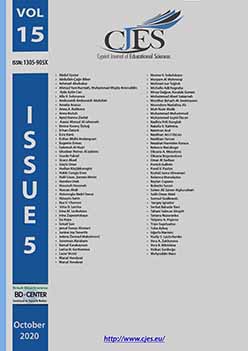Cognitive flexibility as a predictor of subjective vitality among university students
Cognitive flexibility as a predictor of subjective vitality among university students
Author(s): Salem Ali Salem AlgharaibehSubject(s): Education, Educational Psychology, Cognitive Psychology
Published by: Birlesik Dunya Yenilik Arastirma ve Yayincilik Merkezi
Keywords: Cognitive flexibility; subjective vitality; undergraduate students; AL-Balqa Applied University; educational psychology;
Summary/Abstract: This study aimed to identify the differences between cognitive flexibility and subjective vitality according to specialisation background (scientific and literary), gender (male and female) and the ability of cognitive flexibility as a predictor of subjective vitality. The cognitive flexibility inventory and subjective vitality scale were applied to 189 undergraduate students in Jordan. The results showed that the highest mean of cognitive flexibility dimensions belonged to alternative flexibility, whereas control flexibility came in the second rank. The results indicated that there were statistically significant differences in alternative flexibility according to specialisation background in favour of literary background students, but no significant differences were found in control flexibility, total cognitive flexibility and total score of subjective vitality. The results also indicated that there were significant differences in alternative flexibility and the total score of cognitive flexibility according to gender for males' benefit, but no significant differences in control flexibility and the total score of subjective vitality according to gender were found. Furthermore, the subjective vitality could be predicted by cognitive flexibility.
Journal: Kıbrıslı Eğitim Bilimleri Dergisi
- Issue Year: 15/2020
- Issue No: 5
- Page Range: 923-936
- Page Count: 14
- Language: English

